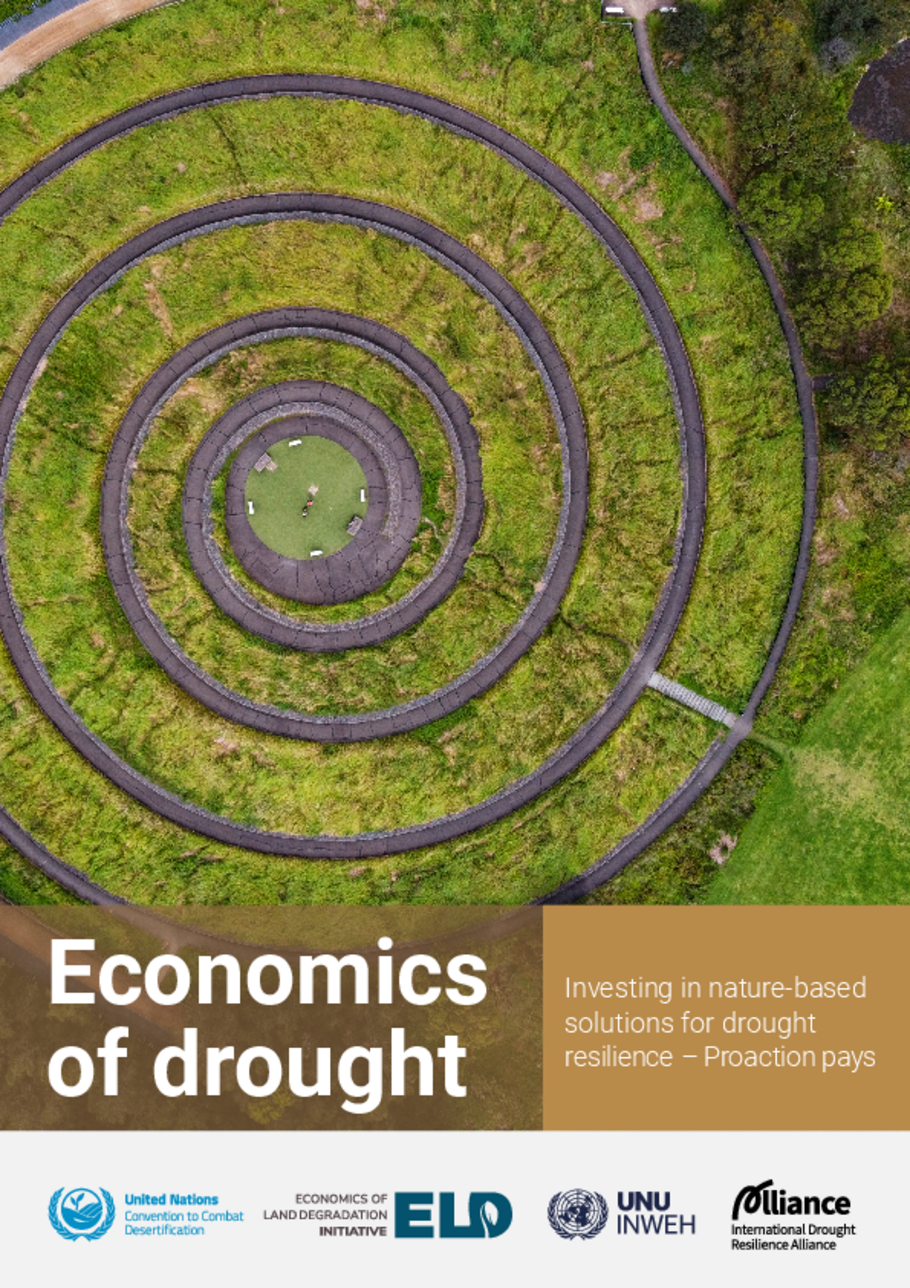
Sustainable land and water management for drought pays off, says new report
Riyadh, Saudi Arabia — As droughts fuelled by human destruction of the environment are projected to affect 3 in 4 people by 2050, investing in sustainable land and water management is essential to reduce their costs, which already exceed $ 307 billion per year globally, according to a new report launched at the Conference of the Parties (COP16) of the United Nations Convention to Combat Desertification (UNCCD) earlier today.
Drawing on a wealth of evidence and case studies from countries all around the world —like Chile, India, Jordan, Kenya, Spain, and Tunisia— the report makes the economic and business case for nature-based solutions (NbS) to drought. That is, for practices that restore ecosystem functions and soil health to enhance water flow, storage, and supply in support of human wellbeing —for example, reforestation, grazing management, and the management, restoration and conservation of watersheds.
The report, ‘Economics of drought: Investing in nature-based solutions for drought resilience – proaction pays,’ is co-authored by the Economics of Land Degradation Initiative (ELD), the United Nations University Institute for Water, Environment and Health (UNU-INWEH), the United Nations Convention to Combat Desertification (UNCCD) and financially supported by the German Federal Ministry for Economic Cooperation and Development, the International Drought Resilience Alliance (IDRA) and the European Union.
“Managing our land and water sustainably is essential to unlock economic growth and build resilience for communities that are becoming locked into cycles of drought around the world,” said UNCCD Deputy Executive Secretary Andrea Meza. “As talks for a landmark COP decision on drought are underway, the report calls on world leaders to recognize the outsized, and preventable, costs of drought, and to leverage proactive and nature-based solutions to secure human development within planetary boundaries.”
Urbanization, deforestation, surface water and groundwater overdraft, and climate change are altering land cover and depleting freshwater reserves, meaning that drought is not only caused by the lack of rain, but also by the way we treat our land and water resources. Thus, the risk of water shortages as well as cyclical droughts and floods can be managed through adequate policies, incentives, and investments in our natural capital.
Share: